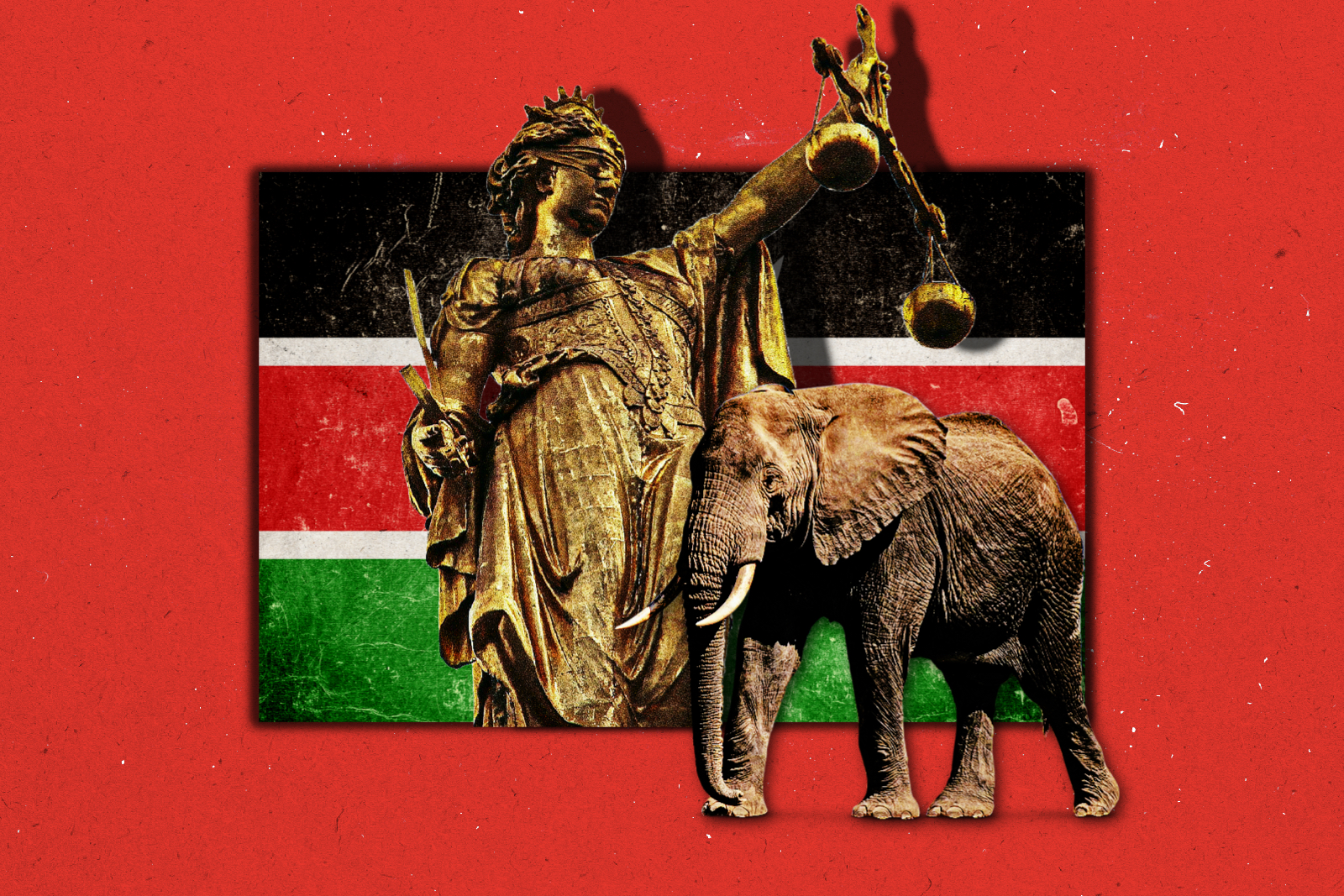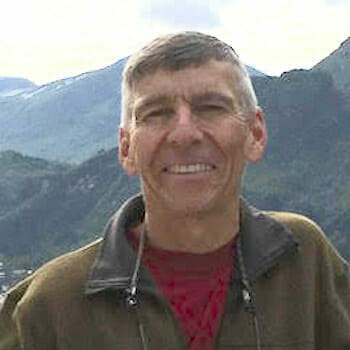
After 8 Years, Kenyan Ivory Case Comes to a Close
It has been nearly eight years since the first arrests were made. In 2015, Thai authorities discovered 511 pieces of ivory weighing 3,127 kg, valued at $4.3 million, in a shipping container of tea leaves from Mombasa, Kenya. Fast forward to 2023, and the trial has finally come to a close. Police Superintendent James Githinji was the last witness to testify.
This court journey began in June 2015. Mombasa area businessman Abdulrahman Mahmoud Sheikh, his half-brother, Sheikh Mahmoud Abdulrahman, and his father, Mahmoud Abdulrahman Sheikh, were arrested and charged with orchestrating the ivory shipment. Additionally, six others were charged: Lucy Muthoni Kahoto of the Kenya Revenue Authority (KRA), Musa Jacob Lithare, Samuel Mbote Mundia, Salim Juma, Abbas Issa Rashid, and Kenneth Mwangi Njuguna.
It is alleged that they had all been involved in shipping 3,127 kg of ivory in a shipping container of tea leaves bound for Thailand in 2015. It is also alleged that they shipped over 4,600 kg of ivory to Singapore in May 2015, but those charges were never filed. The accused faced charges under the Wildlife Conservation and Management Act, the Prevention of Organized Crime Act, and the East African Community Customs Management Act.
On the final day of the trial, four police officers were due to testify, but only one was present. A cybercrimes expert was unable to travel with no reason given, another officer was under the weather, and a third was in another part of the country.
James Githinji was the last and 27th prosecution witness. He was no stranger to major ivory cases having been seconded to the KRA as an investigator in 2010. He had been involved in at least four other related investigations and almost certainly more.
On this day, he was on the stand just short of two hours. Thirty minutes of that testimony was dedicated to how Thailand’s lack of cooperation had handcuffed Kenya in its efforts to conduct a comprehensive investigation. Much of Githinji’s testimony was in effect a summary of the initial investigation.
In essence, on March 21st, 2015, a shipping container contracted by Nicholas Jefwa went to Siginon Freight Services and was loaded with bags of tea. The container left a few hours later and instead of proceeding to a customs control area, went to a house in Mombasa. It remained there for 2 days until it was driven to the port where the container cleared customs, primarily on the strength of it carrying tea which, at that time, was exempted from scanning. It was implied through Githinji’s testimony that the 3,127 kg of ivory was loaded onto the container during that 48-hour window.
The investigation subsequently revealed that the Mombasa house was leased to a Said Juma Said, who was actually Abdulrahman Mahmoud Sheikh. Inside the home, a receipt was found that listed items from an area store which, through loyalty points, was linked to Sheikh Mahmoud Abdurahman. The father of the first two accused, Mahmoud Abdurahman Sheikh, was linked to the property through his sons. He had been seen at the home at least once in their company.
Inside the home, elephant ivory chippings, tea leaves, a weighing scale, an electric grinder, and empty gunny bags, like those used to package the tusks in the Singapore seizure, were found.
The problems were then outlined regarding assistance Thai officials had not provided. An investigative team from Kenya did travel to Thailand. Dr. Samuel Wasser, who had conducted DNA analysis on over fifty previous ivory seizures, was also part of that team. None of them were permitted access to the ivory for DNA sampling or related evidence gathering.
The continued diplomatic exchange of correspondence between Kenya and Thailand ended unsuccessfully on all counts but one. Thailand did provide an analysis to Kenyan authorities that the ivory found in the container was elephant ivory, but it was not in a format that could be submitted to the court as evidence.
Of note, and not specifically related to the trial, was Githinji’s testimony that two other individuals wanted in relation to this case and on an Interpol Red Notice list were back in Kenya. The Jefwa brothers were amongst the first to come under the microscope of the investigation. Nicholas, and his brother Samuel, were no strangers to authorities.
In September 2014, Nicholas met with one of the directors of a tea exporting business, Almasi Chai, and together they formed an illicit partnership to export tea leaves to Asia. It is known that the Jefwa brothers, through their business, Potential Quality Supplies, and Almasi Chai, shipped three other containers of tea leaves. The first one was on October 6, 2014, a second to Sri Lanka on December 12th, and a third to Singapore on February 28th, 2015. The contents of those three shipments were never verified by customs officials, but it would not be a stretch to believe that they contained ivory.
The Jefwa brothers fled Kenya within days of learning of the Thailand seizure. The pair, described by police as part of a cartel involved in the ivory trade in East Africa, had been on the run ever since.
Githinji told the court that the Jefwa brothers had been in Kenya since November and under the protection of an anticipatory bail obtained through the courts. The Jefwa brothers were to provide statements to investigators as a proviso to the order.
While the prosecution foisted much of the blame on Thailand for a lack of assistance, there was no shortage of blame on the Kenyan side.
This case was beset with the regular institutional pitfalls associated with a long-running prosecution such as transfers and re-assignments. Judge Martha Mutuku is the 5th judge to have presided over this case. She has heard the testimony of three of the 27 witnesses. She will be relying on typed notes from the other judges to assist her in making a final decision.
Jami Yamina was a prosecutor in this case in the early stages before a 2018 re-assignment to western Kenya and one year in the United States to obtain a Master’s degree in animal law. Three other prosecutors have had this matter as primaries, and a host of others have touched this file in some manner.
The officer initially in charge of this investigation, Alphonce Odhiambo Kamlus, died sometime mid-investigation and not of natural causes. His sudden passing was blamed for several internal miscommunications and missing evidence which included the weigh scales and the receipt that led authorities to the second accused. Under this umbrella was also the late ‘retrieval’ of crime scene photos, not provided to defence counsel until the penultimate day of the prosecution. The photos and associated report were dated June 2015.
Overall, the prosecution had been plagued by delays not uncommon with prosecutions that have outside interests. It took over two years before the first witness testified. In August 2019, the prosecutors came under fire when the case was delayed again with the file being handed over to a more junior prosecutor with no knowledge of the case. In February 2021, Judge Evans Makori ordered prosecutor Edgar Mulamula to close the case, stating that “the spectrum of the case is being lost” and the “only remedy is to bring this to a closure.” Makori ordered Mulamula to bring the five remaining witnesses for a last hearing date.
The scheduled trial date did not happen. Fate intervened and for COVID-related reasons, Mulamula was trapped in Nairobi as was one of the accused. Before another trial date could be set, the U.S. Fish and Wild Service supplied to the prosecutors new evidence that allegedly linked Abdulrahman Mahmoud Sheikh and his brother to the Jefwa brothers and Moazu Kromah of the West African cartel. The prosecutors applied to the court to submit that evidence but 14 months later, the hearing to argue that application never happened, and the prosecutors withdrew the application.
From an evidentiary perspective, it was concluded in the day’s proceedings that there was no evidence whatsoever relating to Salim Mohamed Juma Khamisi or Abbasi Issa Rashid, who were drivers/staff under the employ of the first three accused. Evidence against Samuel Mundia, a taxi driver and trusted associate of the Jefwa brothers, was provided in the last minute of Githinji’s testimony. It was simply stated that he (Mundia) assisted the Jefwa brothers in their escape from Kenya having driven them to the Tanzanian border and previously to the Ugandan border. There was also no evidence against the father, Mahmoud Abdurahman Sheikh, besides the fact that he had been seen once at the house in Mombasa. There was no witness who presented that fact and no date and time when that observation was made.
Mention was made of the asset recovery portion of this investigation that was initiated but seemingly not taken to a conclusion. Seven vehicles were initially seized and thirteen bank accounts were frozen, primarily associated with the Sheikh family and the Jefwa brothers. On cross-examination by the lead defence lawyer, Jared Magolo, Githinji admitted that there were no bank transactions that could be attributed to the sale or logistics relating to the ivory consignment.
And while the accused had been charged with an offence under the Organized Crime Act, there was no evidence presented that the organization behind these shipments was transnational in nature or showed any collusion between the accused. Phone data analysis, a normal staple of police investigations, was never presented. Githinji was asked on cross-examination if the issuance and use of Tanzanian passports of Abdulrahman Mahmoud Sheikh had been investigated. He did not answer.
There was strong evidence that indicated that six of the accused were involved in the Singapore shipment but that never came to light. Evidence could have been presented that Musa Jacob Lithare had provided the vehicles that delivered three other containers of ivory for shipment out of Kenya in late 2012 and early 2013, but this was not done. DNA evidence could have been provided showing the linkages between the Lithare-delivered containers and other ivory known to have been supplied by the West African cartel. That did not happen. The application for new evidence, that could have shown (allegedly) a clear nexus between two of the primary accused and the West African cartel, was never heard.
Technically, theoretically, on paper, this case is not over. Judge Mutuku must rule on whether the prosecution has established a prima facie case for the defence to answer. Having said that, the fact that the defence agreed without objection to the entering of either the failed mutual legal assistance documents or the crime scene report without the testimony of its author, would indicate a quid pro quo agreement. And that would not be to the detriment of the accused.
The expectation is that this case will end with the accused walking free. A 2022 conviction was tainted by a two-year prison sentence passed down to two defendants for a 3.8-tonne ivory seizure from 2013, one of the previously referred shipments of Musa Jacob Lithare. The lenient two-year sentence was reduced further when Judge Ann Ong’injo converted the 2-year jail sentence of one of the accused to non-custodial probation, seven months into the sentence. Ong’injo also approved the anticipatory bail order of the Jefwa brothers.
This case will now wait for counsel on both sides to enter their written submissions to the court on May 11th.
